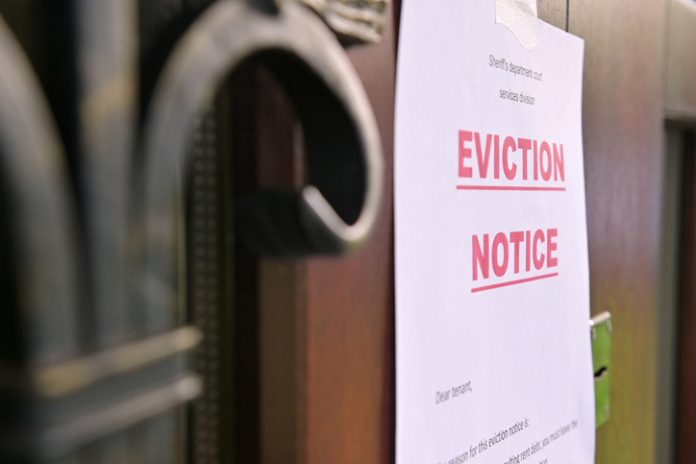A federal court ruled the U.S. Centers for Disease Control and Prevention (CDC) overstepped its authority in issuing a nationwide eviction moratorium to stem the spread of COVID-19.
The March 10 decision in Skyworks v. Centers for Disease Control is a victory for a group of Ohio landlords and the National Association of Homebuilders, who challenged the ban in October. The ruling allows evictions to resume in much of Ohio, restoring landlords’ rights to remove tenants who don’t honor their lease obligation to pay rent. But the landlord groups among the victorious plaintiffs believe the ruling should apply beyond Ohio.
Judge Philip Calabrese’s declaratory judgment held that the CDC lacks the statutory authority to promulgate the eviction ban, writing, “Without question, effective pandemic response depends on the judgment of reliable science – not political science. But that obvious truism does not empower agencies or their officials to exceed the mandate Congress gives them.”
“This is a victory for the rule of law,” said Steve Simpson, a senior attorney with the Pacific Legal Foundation (PLF), which represented the landlords. “This decision makes clear that federal agencies can’t exercise power Congress has not given them. Now our clients no longer have to provide housing for free.”
“An Opportunity to Grab Power”
The Ohio decision came two weeks after the U.S. Court for the Eastern District Court of Texas entered a final judgment declaring the CDC’s eviction moratorium order unconstitutional. In this case, Terkel v. CDC, the plaintiff, a woman who owned four units of rental housing in Tyler, Texas was denied her right under state law to evict a non-paying tenant because of the CDC moratorium. The plaintiff was represented by the Texas Public Policy Foundation (TPPF) and the Southeastern Legal Foundation.
“Today, the court held that the federal government cannot interfere with private property rights or citizen’s access to courts to exercise their rights under state law,” said TPPF General Counsel Robert Henneke in a statement. “The CDC attempted to use COVID-19 as an opportunity to grab power and the court rightly corrected this egregious overreach. This case puts down a marker. There are real, meaningful limits to federal power under our Constitution. And pandemic or not, federal courts have a ‘virtually unflagging obligation’ to impose those limits on cases brought before them.”
Last August, President Trump issued an executive order instructing the CDC and the Department of Health and Human Services (HHS) to “consider whether any measures temporarily halting residential evictions for any tenants for failure to pay rent are reasonably necessary to prevent the further spread of COVID-19 from one State or possession to another State or possession.” CDC seized on the opportunity and issued its nationwide moratorium in September. There was no explanation why landlords should be singled out to allow the use of their property without rent, or why the CDC order was not a taking of property under the fifth amendment to the Constitution.
For its part, the Biden Justice Department, siding with the CDC, has announced it will appeal the Texas ruling. It may do the same in the Ohio case. The Biden administration has also extended the eviction moratorium to March 31 of this year.
Two other cases challenging the CDC moratorium are winding their way through the court system. Chambliss v. CDC, also litigated by the PLF, is on appeal to the U.S. 5th Court of Appeals. And Brown, Rondeau, Krausz, Jones, and the National Apartment Association v. CDC, with the plaintiffs represented by the New Civil Liberties Alliance, is on appeal in the 11th Circuit Court.
“Eviction moratoria may delay eviction,” Michelle Minton, a senior fellow at the Competitive Enterprise Institute, tells Health Care News. “But expect waves of evictions whenever and wherever they expire. Mass evictions will send displaced people scrambling, causing a sudden spike in demand for housing, in those markets, increasing rental prices, and making affordable housing harder to obtain.”
No “Boundless” Authority for the CDC
Civil liberties are a primary interest, says Caleb Kruckenberg, litigation counsel with the NCLA.
“In recent decisions striking down the eviction order, the courts have sent strong messages that our civil liberties must be protected, most especially in a crisis,” Kruckenberg told Health Care News. “As Judge Calabrese wrote in his decision in Ohio, even in a pandemic, we should all be deeply troubled by CDC’s claims that it has ‘boundless’ authority to take any action, with only ‘the judgment of the Director of the CDC or other experts for its limits.’ Congress simply did not provide the CDC with the unreviewable authority to make it a federal crime for housing providers to vindicate their property rights by using the state court processes.”
“Has the pandemic permanently altered our understanding of the prerogatives of government?” Doug Badger, visiting fellow for domestic policy studies at the Heritage Foundation, asks in the Sun-Sentinel (March 5). “Our understanding of government power and individual liberty is at risk of permanent distortion. Normal isn’t the government permitting us to exercise our liberty. Normal means we needn’t seek the government’s permission to exercise our liberty.”
Bonner R. Cohen, Ph.D., (bcohen@nationalcenter.org) is a senior fellow at the National Center for Public Policy Research.





















